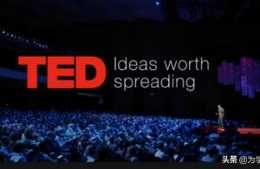
Let‘s start with day and night。 Life evolved under conditions of light and darkness, light and then darkness。 And so plants and animals developed their own internal clocks so that they would be ready for these changes in light。 These are chemical clocks, and they’re found in every known being that has two or more cells and in some that only have one cell。
讓我們從日夜開始。 生命的進化在 光明與黑暗中進行, 光明,然後是黑暗。 因此植物和動物 都進化出自己的內部時鐘, 這使得他們能適應光線的改變。 這是化學時鐘, 每個已知的多細胞生物體內都有這種時鐘, 部分單細胞生物也有這種時鐘。
I‘ll give you an example —— if you take a horseshoe crab off the beach, and you fly it all the way across the continent, and you drop it into a sloped cage, it will scramble up the floor of the cage as the tide is rising on its home shores, and it’ll skitter down again right as the water is receding thousands of miles away。 It‘ll do this for weeks, until it kind of gradually loses the plot。 And it’s incredible to watch, but there‘s nothing psychic or paranormal going on; it’s simply that these crabs have internal cycles that correspond, usually, with what‘s going on around it。
舉個例子。 如果你從海灘上抓一隻鱟, 把它空運到大陸的另一端, 接著把它放入一個傾斜的籠子裡, 在它數千裡外家鄉的海岸 漲潮的時候, 它會爬到籠子的高處。 而退潮時它又會 退回籠子底部。 這種行為它會重複數個星期, 直到它漸漸失去這種判斷能力。 這非常不可思議, 但這不是什麼靈異或是超自然現象; 原因很簡單,這些鱟擁有 能與周圍環境相協調的內部週期。
So, we have this ability as well。 And in humans, we call it the “body clock。” You can see this most clearly when you take away someone’s watch and you shut them into a bunker, deep underground, for a couple of months。 (Laughter) People actually volunteer for this, and they usually come out kind of raving about their productive time in the hole。 So, no matter how atypical these subjects would have to be, they all show the same thing。 They get up just a little bit later every day —— say 15 minutes or so —— and they kind of drift all the way around the clock like this over the course of the weeks。 And so, in this way we know that they are working on their own internal clocks, rather than somehow sensing the day outside。
我們也有這種能力。 就人類而言,我們稱之為生物鐘。 當你拿走某個人的手錶,把他關進一個深入地下的地下堡壘 關上幾個月,你就能更清楚地觀察到 生物鐘的作用。 實際上有志願者做過這個實驗, 他們從洞裡出來時 對他們在洞裡的時間有點混亂。 不管這些志願者顯得多不合邏輯, 有一件事可以確認。 他們每天都比之前晚起一點——大約15分鐘左右—— 在這幾星期內他們的生物鐘就 像這樣不斷向後推延。 而且,就這樣,我們知道他們是用自己的生物鐘做到這點的, 而不是用某種方式感知外面的日光。
So fine, we have a body clock, and it turns out that it‘s incredibly important in our lives。 It’s a huge driver for culture and I think that it‘s the most underrated force on our behavior。 We evolved as a species near the equator, and so we’re very well-equipped to deal with 12 hours of daylight and 12 hours of darkness。 But of course, we‘ve spread to every corner of the globe and in Arctic Canada, where I live, we have perpetual daylight in summer and 24 hours of darkness in winter。 So the culture, the northern aboriginal culture, traditionally has been highly seasonal。 In winter, there’s a lot of sleeping going on; you enjoy your family life inside。 And in summer, it‘s almost manic hunting and working activity very long hours, very active。
那麼好的,我們有生物鐘, 並且它對我們的生活極其重要。 它也是文化的巨大推動力, 我認為這是在我們的行為中最被低估的一種力量。 我們人類是從赤道附近進化而來的一個物種, 因此我們能非常好的 適應12小時的白晝和 12小時的黑夜。 不過當然,我們現在已經遍佈全球的每個角落, 在我居住的加拿大北極地區, 夏天是極晝, 而冬天則是極夜。 因此傳統上北部原住民文化 是高度季節性的。 在冬天,睡眠時間很長。 人們在室內享受家庭生活。 而在夏天則是瘋狂的狩獵 及很長時間的勞作, 非常活躍。
So, what would our natural rhythm look like? What would our sleeping patterns be in the sort of ideal sense? Well, it turns out that when people are living without any sort of artificial light at all, they sleep twice every night。 They go to bed around 8:00 p。m。 until midnight and then again, they sleep from about 2:00 a。m。 until sunrise。 And in-between, they have a couple of hours of sort of meditative quiet in bed。 And during this time, there’s a surge of prolactin, the likes of which a modern day never sees。 The people in these studies report feeling so awake during the daytime, that they realize they‘re experiencing true wakefulness for the first time in their lives。
那麼,我們的自然節奏應該是什麼樣的呢? 我們的理想中的睡眠模式 應是什麼樣的呢? 嗯,事實表明, 當生活在完全沒有 任何人工光源的環境中時, 人們會每晚睡兩次。 人們在晚上8點左右睡覺。 直到午夜, 接著再次入睡, 大約從凌晨2點直到日出。 在這兩次睡眠之間,有幾個小時 在床上安靜的沉思。 在這段時間內, 催乳素產生 這樣的情況在現代社會不會出現。 這些研究中的人們 在白天覺得很清醒, 他們意識到 正在經歷生命中的 第一次真正的失眠。
So, cut to the modern day。 We’re living in a culture of jet lag, global travel, 24-hour business, shift work。 And you know, our modern ways of doing things have their advantages, but I believe we should understand the costs。
那麼,轉到現代社會。 我們的文化中充滿時差, 全球旅行, 24小時營業, 倒班工作。 你知道,我們現代人的 這種生活方式 有它的優點, 但我想我們應該明白所付出的代價。
Thank you。 謝謝。



